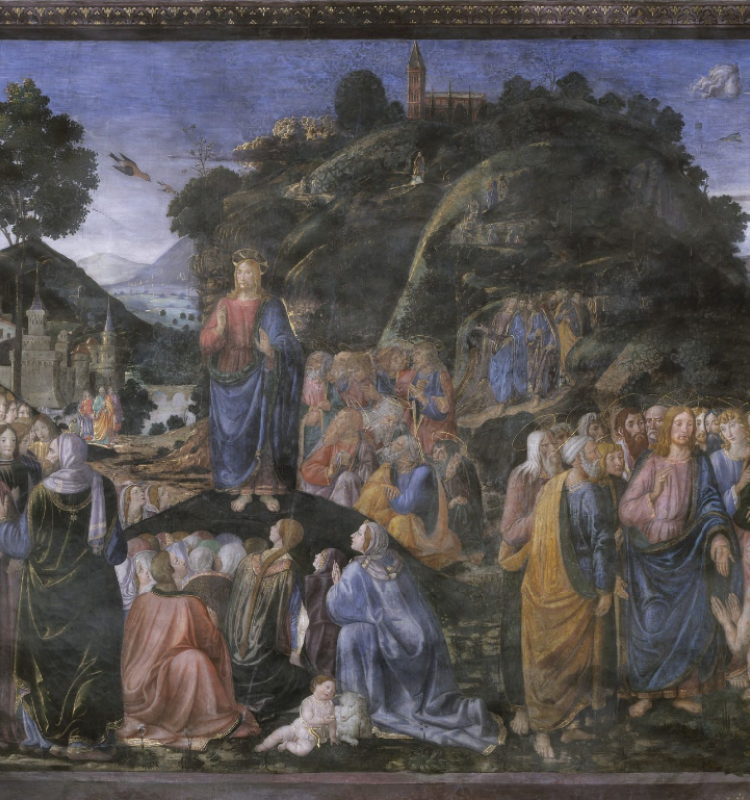Take our stand with God
‘Baptism is to accept that to be a Christian is to be affected - you might even say contaminated - by the mess of humanity....The baptized person is not only in the middle of human suffering and muddle but in the middle of the love and delight of the Father, the Son and the Holy Spirit....And because Jesus has taken His stand right in the middle of those two realities, that is where we take ours.’ Rowan Williams
With the warmth of spring undeniably at our doors, I’ve been attempting solitary daily runs in more secluded parts of Oxford, ones I haven’t regularly seen in the centripetal daily life of a university student. One of my favorite paths leads up to the twelfth-century Romanesque edifice of St Mary the Virgin, our own church’s ‘little sister’ in Iffley. There, in addition to the zig-zagged arches and mythical bestial carvings, I can admire the faint remains of the cell of the medieval anchoress Annora, who spent the last years of her life in seclusion in a small enclosure off the altar. Annora, like many similar anchoresses throughout antiquity and the Middle Ages (including the famous Julian of Norwich), sought a greater spiritual clarity and devotion in individual isolation, striving to eliminate earthly distractions in order to attain a more perfect communion with God.
Seeing the traces of the small cell where Annora passed her days alone in contemplative prayer calls to mind, the current circumstances of our lives, but also the great spiritual potential that temporary withdrawal might bring. The anchoritic life provided literal and spiritual space for growth, though always oriented outside toward the world and to God. Anchoresses served as exemplars, advisors, and guides to their communities, the ultimate goal of their isolation directed beyond themselves and toward others. That divine impulse has always been at the heart of Christian monastic thought. No retirement from the world – medieval or modern, spiritual or physical – can be permanent, for the Risen Lord calls us into the midst of the world and its suffering and its joys. While we might be in momentary, painful isolation, apart from those we love, we can be assured both of God’s presence with us now and of God’s will for us afterwards. The past few months have laid bare like nothing else the wounds and injustices of the world, where God calls us to most urgently. Let us, like the anchoresses of centuries past, use this time of solitude and withdrawal to listen deeply to God, to reflect on the kind of life in love we are meant to lead in the fullness of time. And then let us rise, depart from our cells, and take our stand with God.
